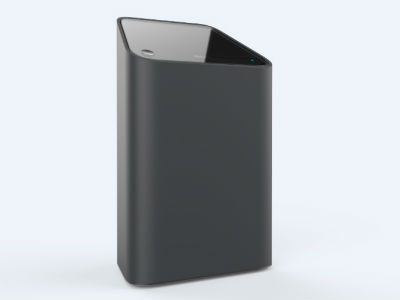Comcast Tests DOCSIS 3.1 Modem
The smarter way to stay on top of the multichannel video marketplace. Sign up below.
You are now subscribed
Your newsletter sign-up was successful

Moving ahead on plan to trial DOCSIS 3.1 technology in Q4 2015, Comcast announced on its corporate blog Tuesday that it reached a milestone when it installed a D3.1-based modem on a “customer-facing network” in late November in its hometown of Philadelphia, and has since expanded those tests to a set of other markets.
“The next-generation technology that will deliver gigabit Internet speeds moved from the laboratory to the living room late last month when we installed what we believe to be the world’s first DOCSIS 3.1 modem on a customer-facing network,” Tony Werner, Comcast’s executive vice president and chief technology officer, noted in the blog post. “Since installing the first live DOCSIS 3.1 modem here in Philadelphia, we’ve continued to expand the trials to additional locations in Pennsylvania, Northern California and Atlanta, Georgia,”
DOCSIS 3.1, an emerging CableLabs specification, has been designed to support capacities of up to 10 Gbps down and at least 1 Gbps upstream, but the first wave of D3.1 modems, which will support both DOCSIS 3.1 and DOCSIS 3.0 traffic, will be capable of supporting about 5 Gbps down and 1 Gbps upstream when fully loaded. Comcast is currently offering residential gigabit speeds in several markets in a targeted fashion via Gigabit Pro, a symmetrical 2 Gbps service that relies on fiber-to-the-premises (FTTP) technologies. Comcast will greatly expand the reach of residential gigabit broadband when it rolls out DOCSIS 3.1 via its widely deployed hybrid fiber/coax (HFC) network.
“The test used the standard cable connections that we have in homes across the country,” Werner wrote. “All we needed was a new modem, a software upgrade to the device that serves that neighborhood, and a few good engineers.”
The initial batch of trials, currently being targeted to an undisclosed number of employee homes in the aforementioned markets, is delivering downstream speeds of about 1 Gbps.
Comcast previewed a D3.1-based “Gigabit Home Gateway” (pictured) in May at the INTX show in Chicago, noting that the new device was expected to go into production sometime this year. Werner’s blog post did not mention whose equipment Comcast is using for the trials. However, Arris and Taiwan’s Compal Electronics were the manufacturing partners involved in the D3.1-based device shown at INTX earlier this year, according to Light Reading.
Werner said Comcast will continue to test DOCSIS 3.1 in the “coming months, as we get ready to start delivering DOCSIS 3.1-powered service to our customers. Before the end of 2016, we will begin offering a new gigabit speed choice that works over the existing connections in our customers’ homes in several parts of the country.”
The smarter way to stay on top of the multichannel video marketplace. Sign up below.
In the meantime, he said Comcast plans to activate more homes with DOCSIS 3.1 technology so the MSO “can observe how it performs in multiple real-world environments and make whatever minor modifications necessary to get it ready for deployment to our customers…We still have a lot of work to do, but these tests confirm that DOCSIS 3.1 will work over our existing network as currently configured.”
